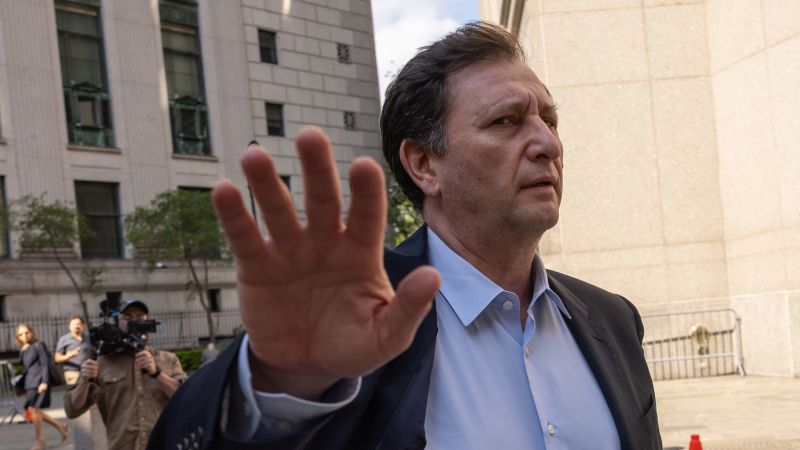In a landmark case highlighting the risks associated with cryptocurrency investments, Alexander Mashinsky, the founder and former CEO of Celsius Network, has been sentenced to 12 years in prison. This significant ruling came after U.S. District Judge John G. Koeltl described Mashinsky as a financial predator who exploited the aspirations of vulnerable customers, enticing them into risky investments under the guise of safety and security. Prosecutors disclosed that Mashinsky managed to pocket over $45 million while countless clients faced catastrophic losses, with some suffering severe psychological distress due to the unraveling of their financial hopes.
Celsius Network, once a prominent player in the cryptocurrency lending space, declared bankruptcy in 2022, revealing the extent of risky financial maneuvers made by Mashinsky with the pooled funds of its customers. It had attracted approximately $20 billion from investors with promises of a secure environment where their crypto assets could earn lucrative interest. However, the reality was far from the assurances given; the platform was engaged in precarious investments, putting customers’ life savings at the mercy of volatile market forces.
The defense for Mashinsky contended that the drastic collapse of Celsius was primarily due to a severe downturn in the cryptocurrency markets during May and June of 2022. Additionally, they painted a picture of his actions as non-predatory and devoid of malicious intent, arguing that he did not act with the desire to harm anyone. In contrast, Assistant U.S. Attorney Allison Nichols portrayed him differently, stating, “he preyed on hope.” Nichols maintained that from the inception, Mashinsky misled investors about Celsius’ capabilities, overstating its ability to generate wealth while deceptively enhancing the company’s profile.
During the sentencing hearing, Mashinsky expressed deep remorse, shedding tears as he sincerely apologized to his former customers. His narrative included a recount of his difficult upbringing, describing how his family fled a small Ukrainian town during his childhood and relocated to the United States, where they found refuge. He reflected on his time in Israel, where he served three years as a fighter pilot in the Israeli Defense Forces before eventually arriving in America.
Mashinsky stated, “I never meant to hurt anybody after all this country has done for me,” emphasizing his dire background as a person who “came from nothing.” Yet, he has admitted guilt as his actions from 2018 to 2022 included misleading customers regarding the safety of their investments, fabricating Celsius’ profitability, and using customer funds for risky, uncollateralized loans.
The impact of Mashinsky’s scheme reverberated deeply among investors, with his attorney, Marc Mukasey, acknowledging the brutal victim impact statements submitted to the court. Mukasey conveyed the sentiments of the victims, stating, “We hear the intensity of their pain. Our sympathies are with everyone.” More voices from the victim’s community amplified their grievances in court, with individuals like Cameron Crewes advocating for severe sentencing measures. Crewes highlighted the tragic fact that nearly 250 victims had passed away before they could see justice served or receive adequate restitution for their investments, underscoring the dire impact on the community.
U.S. Attorney Jay Clayton emphasized the stark disparity created by Mashinsky’s actions, noting that he amassed tens of millions while his customers collectively lost billions. Clayton asserted that American investors deserve protection from such financial misdeeds, reinforcing the idea that the ongoing adoption of digital assets and tokenization must not be misconstrued as a license to deceive.
In conclusion, the case of Alexander Mashinsky serves as a poignant reminder of the inherent risks within cryptocurrency investments and the ethical responsibilities that leaders in the financial sector bear. As the industry continues to evolve, ensuring regulatory compliance and protection for investors will be paramount in creating a secure trading environment. The actions taken against Mashinsky might set a precedent for how similar cases are addressed in the future, emphasizing the fragile balance between financial innovation and the necessity of ethical governance.



